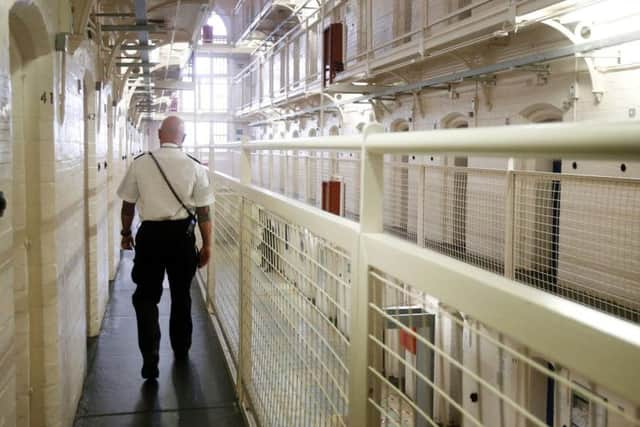Election hustings in Scottish prisons considered by jail chiefs
According to a report in the Scottish Daily Mail, government ministers have had discussions with the Scottish Prison Service about holding political hustings to ensure inmates are engaged fully in the political process.
The government is currently proposing to give prisoners serving sentences of 12 months or less, the ability to vote in local and Scottish Parliament elections, which could affect around 1000 inmates. The move comes as a response to a European court ruling in 2005 that a blanket ban on British prisoners from exercising their right to vote contravened the European Convention on Human Rights.
Advertisement
Hide AdAdvertisement
Hide Ad

A Freedom of Information response has now revealed that the government and the SPS have been in communication about managing prisoner voting, including how "prisoners are able to access additional political information in addition to TV and newspapers which they have routine access to."
An email states: "You had also asked for SPS views in relation to perhaps facilitating 'hustings' in prisons. This is something we would be content to do if required but subject to the usual requirements that apply to any person visiting a prison."
The correspondance also reveals concerns about what would happen if a prisoner has no evidence of a "local connection" to a constituency. Issues around whether prisoners have a right to a proxy vote were also highlighted, as well as how Scots prisoners in English jails would be affected.
A potential problem of prisoners coercing others to vote in a certain way was also raised between the SPS and government as was the need to ensure postal votes were filled out privately.
News of the plans was criticised by Scottish Conservative MSP Annie Wells, who said: "Those who commit crimes so serious that they receive a custodial sentence, should not have the right to vote while they are locked up.
"The prospect of holding hustings in jails will appall the majority of Scots who agree that prisoners should not have the vote."
Nicola Sturgeon has previously told MSPs she did not support prisoners in jail for the most serious crimes being handed the vote. However the Scottish Parliament's equalities and human rights committee has said the franchise to vote should be extended to prisoners serving sentences of up to four years.
A Scottish Government spokesperson said: “This would be an operational matter for the Scottish Prison Service, though we would not anticipate hustings in taking place in prisons.”
Advertisement
Hide AdAdvertisement
Hide AdThe Electoral Franchise Bill, which was unveiled by the First Minister in 2018, completed it's first stage in Holyrood last November. The Bill recognises that proposals to extend voting rights to prisoners might raise concerns about the feelings of the victims of crime, and the government believes that restricting voting rights to those serving sentences of 12 months or less would comply with the European Court of Human Rights ruling.
The government says the aim is not to enfranchise a certain number of prisoners, but to promote responsible citizenship within the context of the wider objectives of rehabilitation and reintegration in order to reduce reoffending.
The Shetland by-election last summer gave short-sentence prisoners, who would normally live on the island, the right to cast a vote despite being behind bars. It was expected to affect fewer than five people.
The Bill will also include provisions to extend the franchise for EU citizens living in Scotland, so they will be allowed to vote in Scottish Parliament and local council elections after Brexit.
